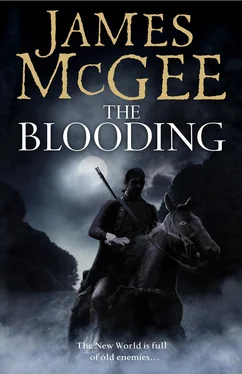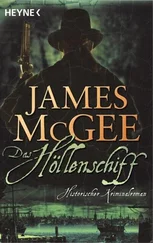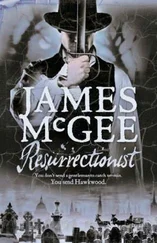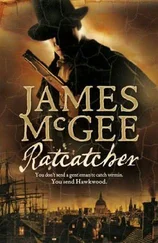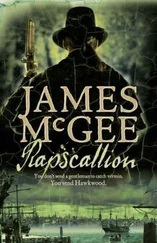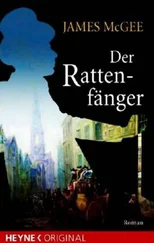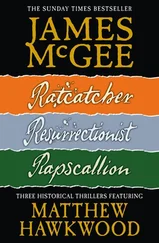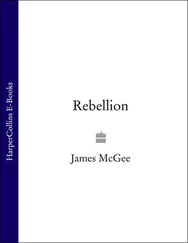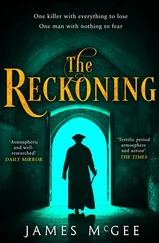The boy thought about his reply. “I’ve never been this close to an Indian before.”
“Well, then,” Wyatt said. “There you are. He’s never been this close to anyone like you before.”
“Me?”
“A white boy,” Wyatt said. Thinking, but not voicing out loud: who killed a man with an axe .
The boy fell silent. After several seconds had passed he said, “Why does he paint his face black?”
“To frighten his enemies.”
The boy frowned. He stared hard at the Ranger.
“I don’t need paint,” Wyatt said, “if that’s what you were thinking. I’m frightening enough as it is.”
A small smile played on the boy’s lips.
It was a start, Wyatt thought.
It was close to noon when the woods began to thin out, allowing glimpses of a wide landscape through gaps in the trees ahead. Wyatt trotted his horse forward to join Tewanias at the front of the line.
“Stand! Who goes there?”
The riders halted. Two men stepped into view from behind the last clump of undergrowth before the trees gave way to open ground. Wyatt surveyed the red jackets, muddy white breeches, tricorn hats with their black cockades and muskets held at the ready. The uniforms identified the men as Royal Yorkers; the colonel’s regiment. Wyatt knew that Tewanias would have detected the duo from a long way back. Indeed, he’d have done so even if the men had been dressed in leaf coats and matching hoods, but there had been no need to give a warning. The Mohawk had known that the soldiers posed no threat.
Good to know the piquets are doing their job , Wyatt thought. Though what the troopers would have done if the returning patrol had turned out to be of Continental origin was unclear. Fired warning shots and beaten a hasty retreat, presumably, or stayed hidden until they’d passed and then sounded the alert.
He addressed the soldier who’d given the order. “Lieutenant Wyatt and party, returning from a reconnaissance. Reporting to Captain McDonell.”
The corporal ran his eye around the group, noting the hard expressions on the unshaven faces. His gaze did not falter when it passed over Tewanias, but flickered as it took in the boy, who looked decidedly out of place among his fellow riders.
“That your hound, Lieutenant?” The corporal jerked his chin towards the dog, which was sniffing energetically at his companion’s gaiters.
“Best tracker in the state,” Wyatt said.
“That so?” The corporal regarded the dog with renewed interest. “What’s his name?”
“Sergeant Tam.”
The corporal gave Wyatt a look. “Well, when the sergeant’s stopped sniffing Private Hilton’s crotch, sir, you’ll find the officers down by the main house.”
Wyatt hid a smile at the trooper’s temerity. “I’m obliged to you. Carry on, gentlemen.”
Raising knuckles to their hats, the two piquets watched as the men and the boy rode on.
Private Hilton hawked up a gobbet of phlegm, spat into the bushes and cocked an eyebrow at his companion’s boldness in the face of a senior rank. “ Sergeant Tam?”
The corporal shrugged. “Wouldn’t bloody surprise me. You know what Rangers are like.”
Private Hilton sniffed lugubriously. “Scruffy beggars, that’s what. If they’ve given the dog stripes, wonder what rank they’ve given the Indian?”
The corporal, whose name was Lovell, pursed his lips. “I heard tell some of ’em have been made captains, but if you want to ask him, be my guest.”
Private Hilton offered no reply but scratched his thigh absently, his nose wrinkling in disgust as his hand came away damp. Wiping dog slobber from his fingers on to his uniform jacket, he shook his head.
“Bleedin’ officers,” he muttered.
Quietly.
Emerging from the treeline, Wyatt reined in his horse and stared out at a rolling countryside punctuated with stands of oak, pine and hemlock. The estate was spread across the bottom of the slope. It covered a substantial area, comprising barns, storehouses, workshops, grist and saw mills, a smithy and several cottages, and could easily have been mistaken for a small, peaceful village had it not been for the tents and uniformed troops gathered at its heart.
One building, set apart from the others by virtue of its size and architecture, caught the eye. Sheathed in white clapboard, and with leaf-green shutters, the mansion, which was built on a slight rise, was protected at the front by a circle of yellow locust trees and at the rear by two enormous stone blockhouses.
As they approached the camp perimeter, Wyatt’s attention was drawn towards several dark smudges moving slowly across the south-eastern horizon. The plumes of smoke were too black and too dense to be rising from cooking fires. Somewhere, off beyond the pinewoods, buildings were ablaze. As he watched, more drifts began to appear, like lateen sails opening to the wind. The fires were spreading. For a second he thought he could smell the burning but then, when his nose picked out the scent of coffee, he knew the aromas were emanating from the field kitchen that had been set up in the lee of one of the blockhouses.
In the camp itself, all appeared calm. There were no raised voices; no officers yelling orders, putting the men through their drills. There was, however, no hiding the purposeful way the soldiers were going about their business or the sense of readiness that hung in the air. There were no musket or rifle stands. Every man carried his weapon to hand in case of attack. Wyatt glanced towards the boy who, to judge from the way his eyes were darting about, was overawed by the appearance of so many troops.
A peal of girlish laughter came suddenly from Wyatt’s right. He turned to where half a dozen children were engaged in a game of chase on the lawn beneath the trees. A knot of adults, all dressed in civilian clothes, was keeping a close watch on the high spirits; families who’d made their own way or who’d been delivered to the Hall by the other patrols. Wyatt wondered if their numbers had swelled much since he’d left.
Standing off to one side was a group of two dozen Negroes, of both sexes, some with children in hand. Servants and farm workers, either collected from the surrounding districts or who’d arrived at the Hall of their own volition in the hope of joining the exodus.
Halting by the first blockhouse, Wyatt and the others dismounted and secured their mounts to the tether line.
“Wait here,” Wyatt told the boy. “Keep your eye on the horses and make sure Tam stays close. Don’t let him run off, else he’ll end up in one of their stews.” He jerked a thumb at a dozen Indian warriors who were gathered around a circular fire pit above which a metal pot was suspended from a tripod of wooden stakes.
The boy’s eyes widened.
“It was a jest, lad,” Wyatt said quickly, smiling.
Behind him, he thought he heard Tewanias mutter beneath his breath.
“Best keep him near, anyway,” Wyatt advised, indicating the dog. “We won’t be long.”
To Donaldson, Wyatt said quietly, “Look after them. I’m off to report to the captain.” He turned away, paused and turned back. “See if one of you can rustle up some victuals. And some coffee. Strong coffee.”
Leaving the others, Wyatt and Tewanias, long guns draped across their arms, made their way to the group of officers gathered around a table strewn with papers that had been set up on the grass close to the mansion’s rear entrance.
As Wyatt and Tewanias approached, a green-coated officer glanced up and frowned.
“Lieutenant?”
“Captain.” Wyatt tipped his cap.
As the officer straightened, Tewanias moved to one side, grounded his musket and rested his linked hands on the upturned muzzle. He looked completely at ease and unimpressed by the ranks that were on display.
Читать дальше
